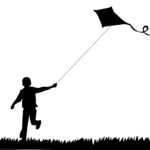“Most don’t that.”
“It might be helpful if they did.”
“I don’t think it’s practical for them. They get too many submissions.”
“I see.” But the way he frowned made me uncertain he understood.
“Yeah. Anyway, I received several rejection letters after that.”
“That’s the reason you attempted suicide?”
“No.” I took a deep breath, trying to rein in my frustration. “I’ve always been suicidal. The letters just made it easier for me to acknowledge my failures. I mean, someone had finally quantified my shortcomings. The letters, in their bluntness, were something physical I could point to and say, ‘See? It’s not all in my head.’”
He studied me carefully.
I waited – waited for the slight heat in my temples to subside; waited for him to say, “It’s not all in your head, Nsuri.” But he only sat there, with his unblinking stare.
I raised my hand, planning to feign a cough when he shifted his gaze to the window. “Continue,” he said.
“The suicide part is more complicated than that.” I folded my arms over my chest, trying, once again, to rein in my frustration. “Your understanding is very important to me. I don’t want you to think I just gave up on myself without fighting.”
“I think I get it.” He began to shiver and pulled his blanket closer to his chest. “Not really, but I want to. It’s just that–”
“You think it should be easy to explain.”
“Yeah. Maybe it’s my ignorance–”
“At least you’re trying to understand.”
He smiled. “I suppose. Anyway, please go on.”
“Well, the letters, the physical proof of my failures, produced the sort of pain I’d come to believe was necessary to groom me into an artist. I wanted to be Wilfred Owen, Bessie Head – broken and genius – not just a degenerate. So I mourned and celebrated the pain because I believed I was finally on my way to artistic brilliance.”



